Currently awaiting passage to India on S.S. Havana. To assist with ASI excavations of Indus sites Harappa and Mohenjo-daro under Sir John Marshall and R.D. Banerji. Recommended highly by Howard C. (evidently Nekhbet amulet was not missed!).
Also: Lord Carnarvon has died. Papers amok with "Curse of Tut-ankh-Amen." Superstitious drivel, certainly, but the imagination is cruel; last night I dreamt that my chest was infested with parasitic beetles. Phantasms of guilt? (What would Dr. Hirschfeld make of it? Purveyor of Oedipal smut!)
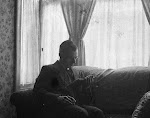

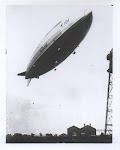
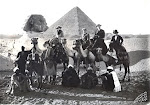

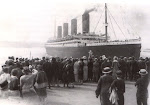
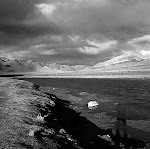

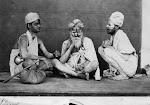


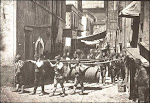


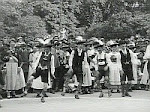


1 comment:
Was it worth it?
Nearly a month at sea aboard the SS Havana and but two nights’ refuge in Major McCormick's bungalow in the military cantonments of Bombay were but a prelude to another four days at sea to the ports of Karachi, three days by train to Larkana . . .
The rail was the worst. You were so very careful, but something sickened you in Karachi. Too disgusted by the filth that had accumulated around the simple hole that served as the train's mobile toilet, you grasped the bars of the railcar's window, pressed your face against them, and heaved impotently. It was only the second day of rail travel, and what was worse than the prospect of another twenty-four hours aboard this shaking, creaking monstrosity that contributed nothing to your health was McCormick's incessant good humor. He sat there, observing your struggle and chuckling as he petted his little moustache. "To get anywhere in India," he teased, "you must safar!" A pun for the bilingual: in Urdu, a safari is a journey. It was the sort of obvious joke that immediately and simultaneously evoked appreciation (how could you not have been the one to invent it?) and odium (for its truth).
You were still sick when you arrived in Larkana in mid-July, and it took you until mid-August to recover your strength. Your caretakers – handsome, light-eyed Baluchi girls dressed in white nurses' uniforms – allowed you to ingest nothing but plain lentil and bland tea for the entire period. Sir Marshall himself came to visit you at one point, but you were too out of sorts to do anything but groan. You do not remember when that first meeting was, but you do remember what he said to you: "You’ll have to do better than this." Then, you think, he was off to Lahore.
In September, McCormick and two stolid Sikh soldiers – you know by now the distinctive turbans and kirpan blades of these fighters – escorted you to the site itself. "It’s monsoon season," the Major noted. "But here in the Sindh, we are between the areas affected by the monsoon winds. You will have nothing more to fear from the poisonous climates of the coasts." You arrived at the village of Ihsaan Waahaan at night. The stone cabin in which you slept had no furniture but four sheetless charpais – the flat, comfortless beds so common in South Asia.
You could not help but to awaken early the next morning. The view was . . . something less than breathtaking, but the strange beauty of a novel locale did not escape you. The dig itself was nothing more than a single trench – no more than five feet deep and six feet long – at the foot of an earthen mound. A single guard leaning on a rough stave is already beginning to doze off in the morning heat. To a layman's eye, it might have been nothing but another hill, but you immediately recognized it for what it was: the burial place of some ancient building. "Bureaucracy and monies," McCormick mumbled before explaining that there would be no more digging that season. "I hope you’re a resourceful kind of chap, because we’ll all be waiting, I’m sorry to say, until March."
Post a Comment